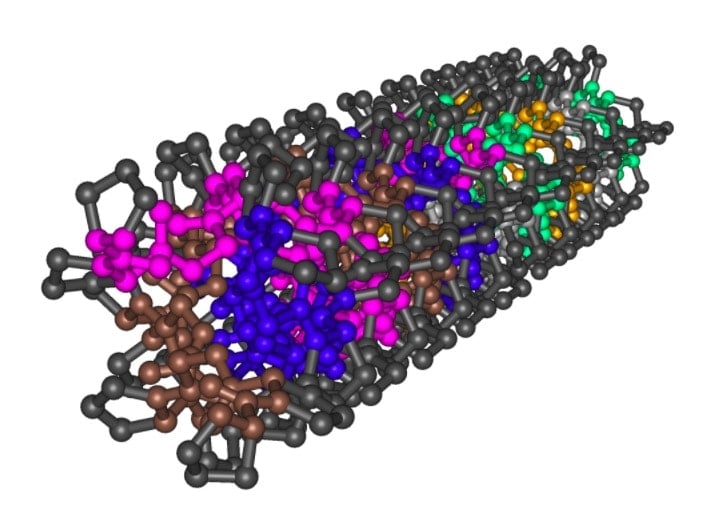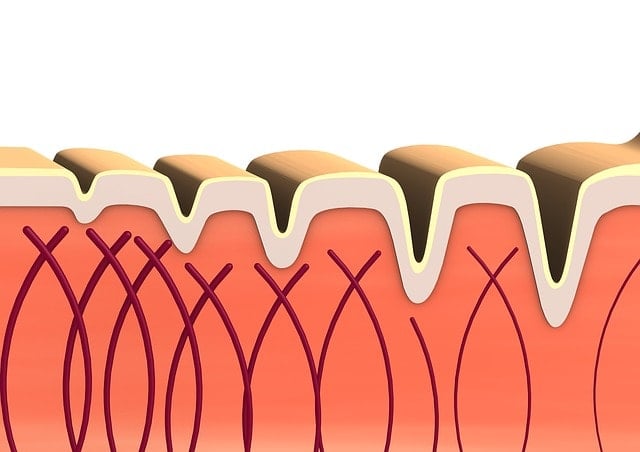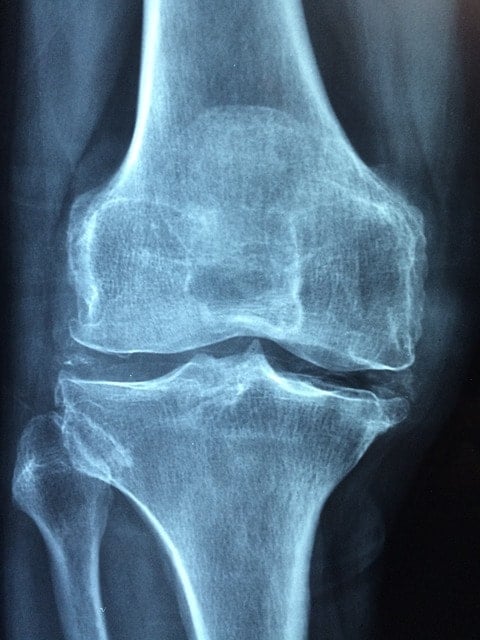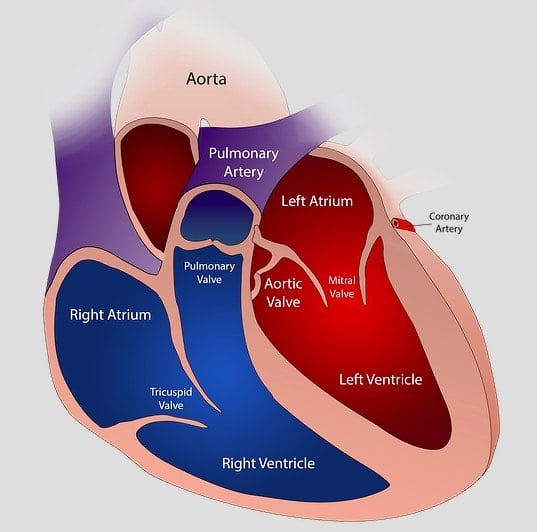Introduction
As a vegetarian, I sometimes wonder if I am missing out on health benefits enjoyed by my meat eating friends . Take bone broth as an example. There are 230,000 Instagram posts for the hashtag #bone broth. That’s a whole lot of bone broth.
I am often chased around the internet by bloggers and marketers who are intent on selling me the benefits of bone broth. (Actually for once, I am not being paranoid here. I believe that this is done by retargeting pixels).
Chief among the benefits of bone broth (allegedly) is the fact that it is a rich source of collagen.
Collagen is believed to offer a myriad of benefits including glossy hair, strong nails and glowing skin.
The slightly shallow side of me would love these alleged benefits (a lot), but I shudder at the thoughts of even the smell of bone broth.
So let me ask, what exactly is the scientific basis for the collagen industry?
What Is Collagen?
Collagen is the most abundant of the animal proteins. It is widely distributed in soft and hard connective tissues. Collagen comprises one third of the total protein in the body and three quarters of the dry weight of skin.
It was initially thought that only fibroblasts make collagen but we now know that there are a number of different cell types that make collagen.
Collagen fibrils form a highly organized three dimensional scaffold that surrounds cells and maintains the structure and of the extracellular matrix. Biochemically speaking, collagen consists of repeating sequences of three amino acids. Every third amino acid is glycine. Nature loves patterns.
Collagen is not new and has been found in the fossilised remains of a 68 million year old T-rex.
Ehlers-Danlos is a group of disorders in the processing of collagen that affects about 1 in 5000 people. Manifestations of this disorder include hyeprflexible joints and aortic aneurysms.
Common sources of collagen include:
- bovine skin and tendons,
- porcine skin, intestine and bladder mucosa and
- rat tail. (Sounds like an ingredient for a witches potion to me)
Fish collagen is of interest for people whose religious beliefs would preclude use of animal sources collagen.
The specific properties of collage vary depending on the animal and the tissue used. Collagen can even be synthesized by yeast, bacteria and insects.
The original pioneers of the use of collagen were Joseph Lister and William Macewen. Many people say that the history of collagen in modern biomedicine dates back to Joseph Lister who (in 1881) described catgut which is a collagen rich material from the intestine of sheep that is used for suturing. More detailed studies of the exact structure of collagen dates back to the 1940s.

It is the principal component of leather and glue. The mechanism of action of collagen is unclear.
Some people believe that it works primarily as an anti-inflammatory and others believe that it works by providing chondroitin and glucosamine building blocks to rebuild cartilage.
It seems that not knowing the mechanism of action does not dampen the enthusiasm of Amazon shoppers. There are 200,000 collagen based products for sale on Amazon with an average cost of $2 per ounce.
At least 28 different types of collagen have been identified. However 80-90% of collagen in the body consists of types I, II and III.
- Type I is used to re-enforce bone.
- Type II is the major collagen in cartilage
- Type III is found in reticulate matter in intestinal wall, muscles and blood vessels. It can also co-exist with Type I collagen.
- Type IV is part of the basement membrane and
- Type V is found in the hair and placenta.
Is There Any Research?
There are over 200,000 publications on collagen including 6000 clinical trials. To put this into context, there are 6,000,000 publications on proteins which include 150,000 clinical trials.
Does Collagen Improve the Health of Skin and Hair?

Collagen can be synthesized into three dimensional structures that are biocompatible, biodegradable, non-toxic and have high tensile strength which theoretically makes them ideal candidates for wound healing and tissue engineering.
Oral collagen supplementation for 8 weeks was shown to improve skin hydration (as measured by corneometry) and collagen density (as measured by high resolution ultrasound) (1). These effects continued 12 weeks after discontinuation of the supplementation. The study team involved researchers employed by a company with commercial interest in a positive result from the study. Spoiler alert.
Long term care residents with pressure ulcers were randomised to collagen hydrolysate or placebo (plus standard of care wound care) for eight weeks (2). A statistically significant difference in the wounds was noted in favour of the collagen treatment arm.
A double-blind placebo controlled trial in 69 women aged 35 -55 compared collagen hydrolysate (2.5 gm or 5 gm) versus placebo on skin physiology (3). After 8 weeks of treatment, there was a statistically significant improvement in skin elasticity and a non statistically significant improvement in skin moisture and evaporation
Choi et al reported skin benefits of daily collagen (3gm) in 32 healthy volunteers over 12 weeks (4). Study participants were noted to have improved skin hydration and elasticity. No additional benefit was noted by the concomitant use of vitamin C 500mg.
A Chinese-Japanese collaboration compared two different concentrations of oral collagen versus placebo over 8 weeks on skin health (5). The higher concentration of collagen showed a significantly greater improvement on facial moisture, elasticity and wrinkles as compared to the lower dose of collagen or the placebo.
Bottom Line
A small number of short-term studies show that collagen may help skin health. However, let’s 'call a spade a spade' as my Irish grandmother would day. There is insufficient quality long term data to justify spending money on collagen.
Does It Reduce Joint Pain And Degeneration?

When to comes to osteoarthritis, there are two classifications of drugs:
- disease modifying agents or DMARDS (which actually modify the underlying disease process)
- symptomatic relief (drugs that just relieve symptoms but have no effect on the underlying disease process).
If (and this is a big if) collagen acts by providing material for regeneration of cartilage, then it could act as a disease modifying agent. But does it?
A comprehensive review paper in 2006 evaluated data from published papers which included keywords collagen, osteoarthritis, cartilage, chondrocytes and clinical trial (6). The review was cross populated with information from abstracts and oral presentations (many researchers have writers block and some great studies never make it to the publication stage).
A total of seven studies (4 open-label and 3 double-blind) were included in the final analysis. The overview found that oral collagen is absorbed from the gastrointestinal tract, results in a non-stastistically significant increase in the synthesis of chondrocytes (compared to placebo) and gets incorporated into cartilage. Collagen was well tolerated in the studies reported.
Does any of this matter?
Since then a 200 patient study compared the effect of collagen hydrolysate 1200mg/day to placebo on joint pain over 6 months (7). For the purposes of the study, a responder was defined as someone experiencing clinical symptomatic improvement of 20% or more.
A non-statistically significant number of patients in the treatment arm of the study reached the defined end-point as compared to the placebo arm of the study at six months (but not at three months). The collagen was well-tolerated and no serious side effects were noted.
In 2016, a study sponsored by a nutraceutical company evaluated undenatured type II collagen 40mg versus glucosamine 1500mg plus chondroitin 1200 mg versus placebo on knee osteoarthritis (8). The denatured collagen II was derived from chicken sternum. The study intervention period was three months.
The undenatured type II collagen arm statistically outperformed the other study arms for pain, stiffness and physical function. There were no safety differences among the three study arms.
A prospective randomized placebo controlled trial from Penn State University evaluated the effect of collagen hydrolysate in athletes with activity related joint pain (9).
A total of 147 athletes were randomized to collagen hydrolysate or placebo over 24 weeks. Key symptoms evaluated in the study outcome were pain, mobility and inflammation. There were statistically significant differences in joint pain at rest, walking, standing, lifting objects and carrying objects.
The study team acknowledge that the study size was small and the period of follow up was short. However they point out the fact that this was the first clinical trial of 24 weeks duration to show improvement in athletes taking dietary collagen supplementation.
A safety and efficacy study compared (chicken derived) type II collagen to a combination of glucosamine plus chondroitin in the treatment of osteoarthritis of the knee in 50 subjects (10). Total daily doses used in the study were undenatured collagen (10 mg of bioactive type II undenatured collagen) or glucosamine 1500 mg or chondroitin 1200 mg.
There was a significant improvement in all assessments from baseline in the collagen but not in the glucosamine plus chondroitin arm of the study. Using the Western Ontario McMaster Osteoarthritis Index, there was a 3.3% decrease in the chondroitin arm versus a 14% decrease in symptoms in the chondroitin plus glucosamine arm.
A total of 58 adverse events were noted in the glucosamine plus chondroitin arm compared to 35 adverse events in the chondroitin arm. Adverse events possibly related to chondroitin were mild and included constipation and headache. Of note the study was sponsored by a manufacturer of collagen. Another spoiler alert.
Having done a tour of individual studies, lets look at a meta-analysis (11). A 2012 review of collagen derivatives in osteoarthritis identified 8 relevant studies and concluded that ‘the overall quality of the evidence was low’ (I think we figured that out too).
The review concluded that there was insufficient evidence to recommend collagen for osteoarthritis at this time.
Bottom Line
As the meta-analysis says ‘there is insufficient evidence to recommend collagen for osteoarthritis at this time’.
Does It Help Heal Leaky Gut?

Other bloggers claim that collagen can help leaky gut (12). They quote a study that shows that levels of collagen IV are low in inflammatory bowel disease as circumstantial evidence that collagen can help leaky gut. I would not like to tell you what my Irish grandmother would have to say about such wild speculation (it would be unprintable).
Bottom Line
Collagen does not help leaky gut.
Does it Boost Muscle Mass? Increase Metabolism?

A total of 105 women with moderate cellulite were randomised to bioactive collagen peptides or placebo for six months (13).The collagen was derived from porcine skin type I collagen degradation. There was a statistically significant improvement in the degree of cellulite and skin waviness. The impact was greater in woman of normal weight as compared to overweight women.
This is the only study that I could find relating collagen with body mass (however vaguely).
Bottom Line
There is no evidence to support collagen for muscle mass or increased metabolism.
Does It Strengthen Nails Hair or Teeth?

Brazilian and German researchers evaluated the effect of bioactive collagen peptides 2.5 gms daily in 25 participants for 24 weeks (14). This was an open label single centre trial. The bioactive collagen promoted an increased nail growth by 12% and decreased frequency of broken nails by 42%.
There are many reasons why this study could not be considered to be high class science (open label, single centre, small numbers, subjective).
Bottom Line
The available research is not sufficiently robust to recommend collagen for nails, hair or teeth.
Does It Improve Liver Health?
Collagen is part of the structure of the liver (15). The amount of collagen in the liver increases with diseases leading to cirrhosis of the liver. This is believed to be due to increased synthesis of collagen. This hardly can be extrapolated to mean that collagen supplementation helps live health.
Bottom Line
Collagen does not improve liver health.
Does It Improve Cardiovascular Health?

There is a study looking at collagen turnover in heart disease but it was negative i.e. no association was found (16). However again this has absolutely nothing to do with collagen supplementation and heart health.
Bottom Line
Collagen supplementation does not help heart health.
Is Collagen Safe?
The Crowley study mentioned above showed that collagen was well tolerated at a dose of 10mg daily was well tolerated apart from some mild headaches and gastrointestinal upset (10).
A study of collagen at doses of 480 or 640 mg daily did not effect liver function or renal function in horses. (17).
Cases of allergy and pathogen transmission have also been reported with use of collagen (18).
Conclusion
I have seen nothing in the scientific literature that would make me pop collagen supplements (or drink bone-broth).
As mentioned above, Ehlers-Danlos is a congenital disorder of collagen synthesis.
Logically, if collagen supplementation were a real contender for health benefits , then surely we would at least find some trials of collagen in Ehlers Danlos? Well, there are exactly none.
Need I say anymore.
Let’s be rational for a moment. Collagen has been around for 68 million years. Nature is incredibly good at design and innovation. Do you really think that relative newcomers to planet earth (like you and me can) could improve on nature’s design by eating rat’s tail?
Busted!

Leave a Reply